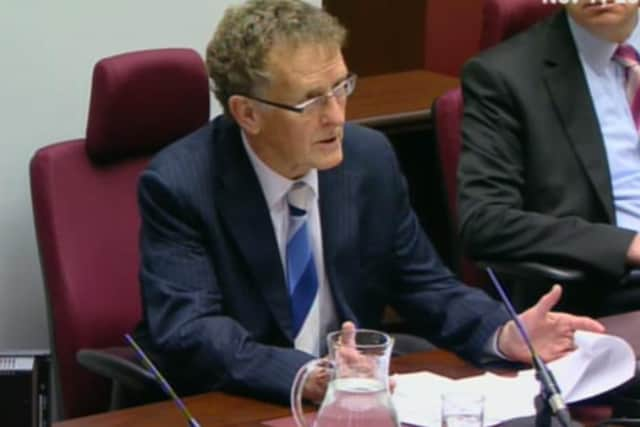RHI Cash for ash inquiry: Errors and omissions to blame – not political corruption
and live on Freeview channel 276
The inquiry made some criticism of current DUP leader and First Minister Arlene Foster’s role in developing the ill-fated Renewable Heat Incentive (RHI) scheme and also highlighted “unacceptable behaviour” by several of her party’s special advisers.
But the probe, chaired by retired judge Sir Patrick Coghlin, said it would be wrong to blame specific individuals or groups for the design flaws that saw applicants “perversely incentivised” to burn excess heat to turn a profit.
Advertisement
Hide AdAdvertisement
Hide AdHe said responsibility should be shared among a wide range of people and public bodies. The report was particularly critical of the Stormont department in charge of the scheme, the then named Department for Enterprise, Trade and investment (DETI).


“Corrupt or malicious activity on the part of officials, ministers or special advisers was not the cause of what went wrong with the NI RHI scheme, albeit the inquiry has identified some instances where behaviour was unacceptable,” stated the report.
“Rather the vast majority of what went wrong was due to an accumulation an compounding of error and omissions over time and a failure of attention, on the part of all those involved in their differing roles to identify the existence, significance or implications of those errors and omissions.”
It added: “Responsibility for what went wrong lay not just with one individual or group but with abroad range of persons and organisations involved, across a variety of areas relating to the design, approval, management and administration of the NI RHI scheme through its life.”
Advertisement
Hide AdAdvertisement
Hide AdThe RHI incentivised businesses and farmers to switch to eco-friendly boilers by paying them a subsidy for the wood pellet fuel required to run them.
But mistakes in its designs saw the subsidy rates set higher than the actual cost of the wood pellets – with applicants finding themselves able to burn to earn.
Comment Guidelines
National World encourages reader discussion on our stories. User feedback, insights and back-and-forth exchanges add a rich layer of context to reporting. Please review our Community Guidelines before commenting.